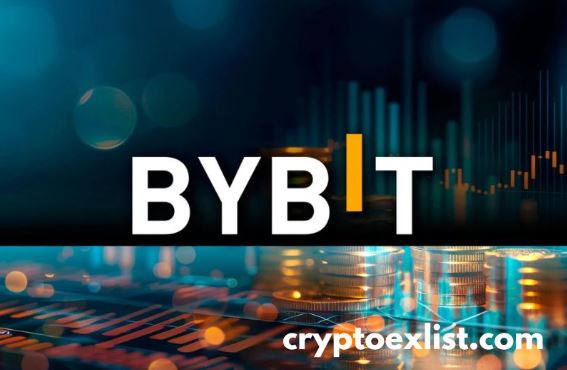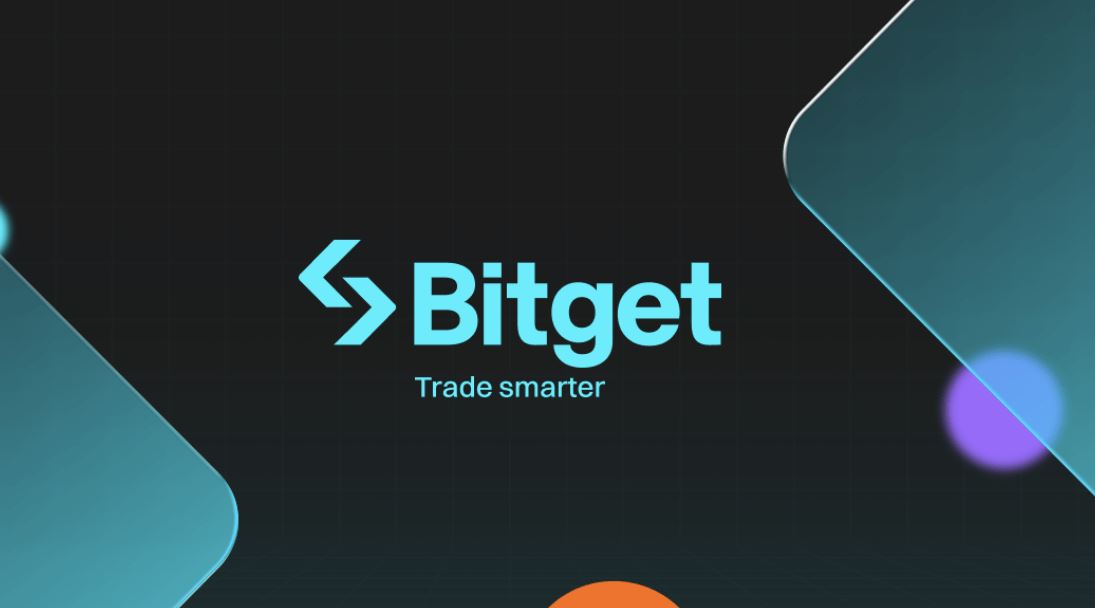Bybit vs Bitget Cryptocurrency Exchange Comparison
When it comes to trading cryptocurrency derivatives, Bybit and Bitget are two names that have garnered significant attention from traders worldwide. Both platforms offer robust trading options, competitive fees, and innovative tools designed for the needs of both experienced and professional traders. However, the two platforms cater to different types of users. Bybit focuses on more advanced traders with high leverage, while Bitget offers additional features like copy trading that appeal to a broader audience.
This article will compare Bybit and Bitget across various parameters including features, fees, supported cryptocurrencies, security, and more to help you determine which platform suits your trading needs.
Overview of Bybit and Bitget
Bybit and Bitget offer a range of features catering to different traders. Bybit focuses on advanced tools and high leverage, ideal for experienced traders, while Bitget offers copy trading and a variety of assets, making it accessible to both beginners and professionals. Let’s explore what each platform provides.
Bybit: A Platform for Advanced Users
Founded in 2018 and headquartered in Dubai, Bybit is a cryptocurrency exchange that primarily focuses on derivatives trading, including futures and perpetual contracts. Known for its low trading fees and high leverage, Bybit is popular among advanced traders. The platform offers leverage of up to 100x and is known for its exceptional functionality, mobile app, and 24/7 customer support. With more than 61.7 million active users, Bybit is one of the fastest-growing exchanges in the crypto industry.
Bitget: A Diverse Platform with Copy Trading Features
Bitget, established in 2018 and based in Seychelles, is a cryptocurrency derivatives exchange that focuses on offering low fees and a wide variety of trading features. It is particularly well-known for its copy trading capabilities, which allow less experienced traders to follow and copy the trades of successful traders. The platform supports over 500 assets and is available in over 100 countries, including major markets like the US, UK, and Canada. Bitget is also expanding its offerings in futures trading, staking, and AI-powered trading bots.
Key Features and Trading Options
Both Bybit and Bitget offer a variety of trading options, but the specific features differ, catering to different types of traders.
Bybit: Ideal for Experienced Traders
Bybit is designed for experienced traders who are looking for robust and advanced trading features. Some of the standout features of Bybit include:
- High leverage: Up to 100x for futures and perpetual contracts.
- Advanced charting and analytics tools: Bybit provides users with in-depth technical analysis tools and multiple order types, such as limit and market orders.
- Mobile app: The platform’s mobile app allows users to trade on the go, making it convenient for active traders.
- Low trading fees: Bybit offers competitive trading fees, starting from 0.1% for takers and 0.025% for makers.
Bybit excels in futures and margin trading, making it ideal for users with a strong understanding of the market and its complexities. The platform, however, has a steep learning curve for beginners due to the advanced tools and features.
Bitget: A Platform for Both Beginners and Advanced Traders
Bitget is designed to cater to both novice and advanced users. Some of its key features include:
- Copy trading: Bitget allows users to copy the trades of successful traders, making it a great option for beginners who want to learn from more experienced users.
- Low trading fees: Bitget also offers competitive trading fees, with the maker fee being 0.02% and the taker fee 0.06%.
- Advanced futures trading: Bitget supports derivatives trading and allows users to trade with leverage in a highly flexible environment.
- AI-powered trading bots: Bitget offers automated trading with the help of AI trading bots that execute trades based on preset strategies.
The platform also supports a wide range of assets, including both crypto-to-crypto and fiat-to-crypto pairs, offering ample opportunities for diversification.
Supported Cryptocurrencies
When comparing two of the leading cryptocurrency exchanges, Bybit and Bitget, understanding the supported cryptocurrencies on each platform is essential for traders looking to diversify their portfolios.
Bybit: Focus on Major Cryptocurrencies and Altcoins
Bybit supports over 1,600 cryptocurrencies and is well-suited for traders looking to engage in major cryptocurrencies like Bitcoin (BTC), Ethereum (ETH), XRP, and ARB. It’s a great platform for traders who wish to explore altcoins and use leverage for maximizing returns.
Bitget: A Wider Variety of Assets
Bitget supports a diverse range of assets, including more than 500+ cryptocurrencies such as Bitcoin (BTC), Ethereum (ETH), and USDT. With over 650 trading pairs, it allows users to engage in both spot trading and futures trading. Bitget’s variety of tokens makes it an attractive option for traders who want to diversify their portfolios.
Security Features
Both exchanges emphasize security and offer strong protective measures.
Bybit: Robust Security
Bybit takes security seriously by implementing two-factor authentication (2FA) for account protection. It also stores the majority of its funds in cold wallets, which are not connected to the internet, ensuring that user funds are less susceptible to hacks. Moreover, Bybit has an insurance fund that covers any losses users might incur in the event of a breach.
Bitget: Strong Security Features
Bitget also uses 2FA and cold storage to protect user funds. The platform adheres to high-security standards and provides a multi-signature security system. While Bitget does not have an insurance fund like Bybit, its security infrastructure is robust and trusted by users globally.
User Interface and Experience
The user interface is crucial for a seamless trading experience. Bybit offers a feature-rich interface for advanced traders, while Bitget provides a more intuitive design suitable for both beginners and experienced traders. Let’s compare both platforms.
Bybit: Advanced Interface with a Steep Learning Curve
Bybit’s interface is feature-rich, with powerful charting tools and numerous trading options, making it ideal for advanced traders. However, this complexity can be overwhelming for newcomers. Fortunately, Bybit offers a simplified mobile app for easier navigation.
Bitget: Intuitive Interface for All Users
Bitget offers a clean, intuitive interface that makes it easy for both beginners and advanced traders to use. The platform’s design ensures that users can easily access all the tools they need for trading. Despite the complexity of some features, Bitget’s interface is user-friendly, especially for copy traders.
Customer Support
Both Bybit and Bitget offer 24/7 customer support, ensuring that users can get assistance anytime. Whether through live chat, email, or help centers, both platforms strive to provide quick and reliable support. In this section, we’ll compare their customer service to help you decide which platform offers better assistance.
Bybit: Responsive 24/7 Customer Support
Bybit offers 24/7 customer support through live chat and email. Users have praised the exchange for its quick response time and efficient problem-solving. Although the support team is responsive, it may take a bit longer to resolve issues during peak periods.
Bitget: Reliable Support
Bitget also offers 24/7 customer support via live chat, email, and a help center. The platform’s support is known for being quick and reliable, providing assistance to users anytime.
Pricing and Withdrawal Fees
Trading and withdrawal fees are essential when choosing an exchange. Bybit and Bitget offer competitive pricing, but their structures differ. Here, we’ll compare their fees to help you choose the platform that best fits your trading needs.
Bybit: Competitive Fees and Low Withdrawal Costs
Bybit charges trading fees of up to 0.1% and 0.0001 BTC for withdrawals. Its fee structure is highly attractive, particularly for those who trade frequently.
Bitget: Low Trading Fees with Higher Withdrawal Costs
Bitget has competitive fees as well, with maker fees at 0.02% and taker fees at 0.06%. However, its withdrawal fees may vary depending on the cryptocurrency being withdrawn. Still, Bitget remains a cost-effective choice for many traders.
Payment Methods
Both exchanges support a variety of payment methods, including credit card payments, wire transfers, and crypto-to-fiat options.
Bybit: Multiple Payment Options Available
Bybit supports payments via MasterCard, wire transfers, and crypto-to-fiat transactions. This flexibility makes it easy for traders worldwide to fund their accounts.
Bitget: Focus on Fiat-to-Crypto Payments
Bitget also accepts MasterCard, wire transfers, and provides support for fiat-to-crypto transactions, with various fiat currencies available, including USD, EUR, and JPY.
Final Verdict: Which Exchange is Better?
The choice between Bybit and Bitget depends on your experience and trading preferences. Bybit is perfect for advanced traders looking for high leverage and advanced tools, while Bitget is ideal for beginners or those interested in copy trading, offering a user-friendly interface and diverse assets. Let’s explore what makes each platform suitable for different traders.
Bybit: Best for Advanced Traders Seeking Low Fees and High Leverage
Bybit is the ideal choice for advanced traders who need a platform with high leverage and low trading fees. Its advanced tools and features make it perfect for seasoned traders, but the platform may be difficult to navigate for newcomers.
Bitget: Great for Beginners and Copy Trading Enthusiasts
Bitget is an excellent option for those looking for a user-friendly interface and a wide range of features like copy trading. With its competitive fees and diverse range of assets, Bitget appeals to both beginners and experienced traders alike.
Conclusion
Both Bybit and Bitget offer unique advantages depending on your trading style. If you’re an advanced trader seeking high leverage and a comprehensive suite of trading options, Bybit is likely the better choice. However, if you prefer a simpler interface, copy trading, and a wider variety of assets, Bitget might be the platform for you.
See Full Comparison



